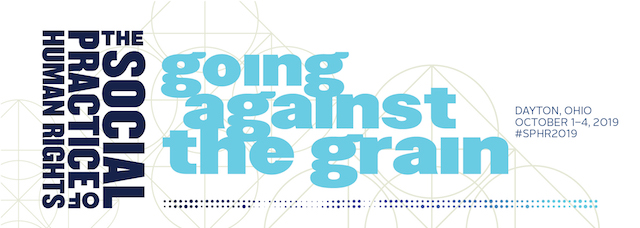Location
Intersection of Arts, Tech, and Advocacy
Start Date
10-3-2019 9:00 AM
End Date
10-3-2019 10:30 AM
Keywords
Myanmar, Muslim, music, violence, Youtube
Abstract
The International Fact-Finding Mission of the United Nations has condemned Myanmar’s treatment of Rohingya people as one of the world’s worst instances of ethnic cleansing, calling it “genocidal in intent.” The Rohingya are only one of many Muslim communities in Myanmar, a number of which have been subject to violent attacks by Buddhists in recent years (Wade 2017). This presentation explains the role that music plays in fostering anti-Muslim prejudice in the country’s majority Buddhist population. I present an analysis of the lyrics and accompanying videos of a corpus of recently recorded songs, all available on Youtube, and argue that these songs constitute hate speech, or better said, hate music (Kahn-Harris 2004). Several ethnomusicologists have called for investigations into whether music incites violence (Johnson and Cloonan 2008; O’Connell 2011). Putting these scholars in dialogue with recent legal scholarship on incitement (Benesch 2008), I further argue that while these songs clearly arouse racist hatred in their listeners – evidenced by the comments responding to the videos – they cannot be held responsible for inciting attacks on Muslims in Myanmar. It is clear, however, that this hate music promotes an “exclusionary ideology” which, as scholars of genocide have shown, is a risk factor that increases the likelihood of the occurrence of genocide by two and half times (Harff 2003). The songs are therefore complicit in the tragic events in Myanmar, as is Youtube, which makes the songs available to all Myanmar citizens with an internet connection.
Author/Speaker Biographical Statement(s)
Heather MacLachlan (Ph.D. Cornell University, 2009) is Associate Professor of Ethnomusicology at the University of Dayton. She is the author Burma’s Pop Music Industry: Creators, Distributors, Censors (University of Rochester Press, 2011) and of numerous journal articles on topics including music pedagogy, American country music, LGBT choirs, and musicking in the Burmese diaspora. Dr. MacLachlan serves as a volunteer Court Appointed Special Advocate (CASA) with the Montgomery County Juvenile Court in Dayton, Ohio.
Included in
Hate Music on Youtube: The Dark Side of Advancing Digital Freedom in Myanmar
Intersection of Arts, Tech, and Advocacy
The International Fact-Finding Mission of the United Nations has condemned Myanmar’s treatment of Rohingya people as one of the world’s worst instances of ethnic cleansing, calling it “genocidal in intent.” The Rohingya are only one of many Muslim communities in Myanmar, a number of which have been subject to violent attacks by Buddhists in recent years (Wade 2017). This presentation explains the role that music plays in fostering anti-Muslim prejudice in the country’s majority Buddhist population. I present an analysis of the lyrics and accompanying videos of a corpus of recently recorded songs, all available on Youtube, and argue that these songs constitute hate speech, or better said, hate music (Kahn-Harris 2004). Several ethnomusicologists have called for investigations into whether music incites violence (Johnson and Cloonan 2008; O’Connell 2011). Putting these scholars in dialogue with recent legal scholarship on incitement (Benesch 2008), I further argue that while these songs clearly arouse racist hatred in their listeners – evidenced by the comments responding to the videos – they cannot be held responsible for inciting attacks on Muslims in Myanmar. It is clear, however, that this hate music promotes an “exclusionary ideology” which, as scholars of genocide have shown, is a risk factor that increases the likelihood of the occurrence of genocide by two and half times (Harff 2003). The songs are therefore complicit in the tragic events in Myanmar, as is Youtube, which makes the songs available to all Myanmar citizens with an internet connection.



